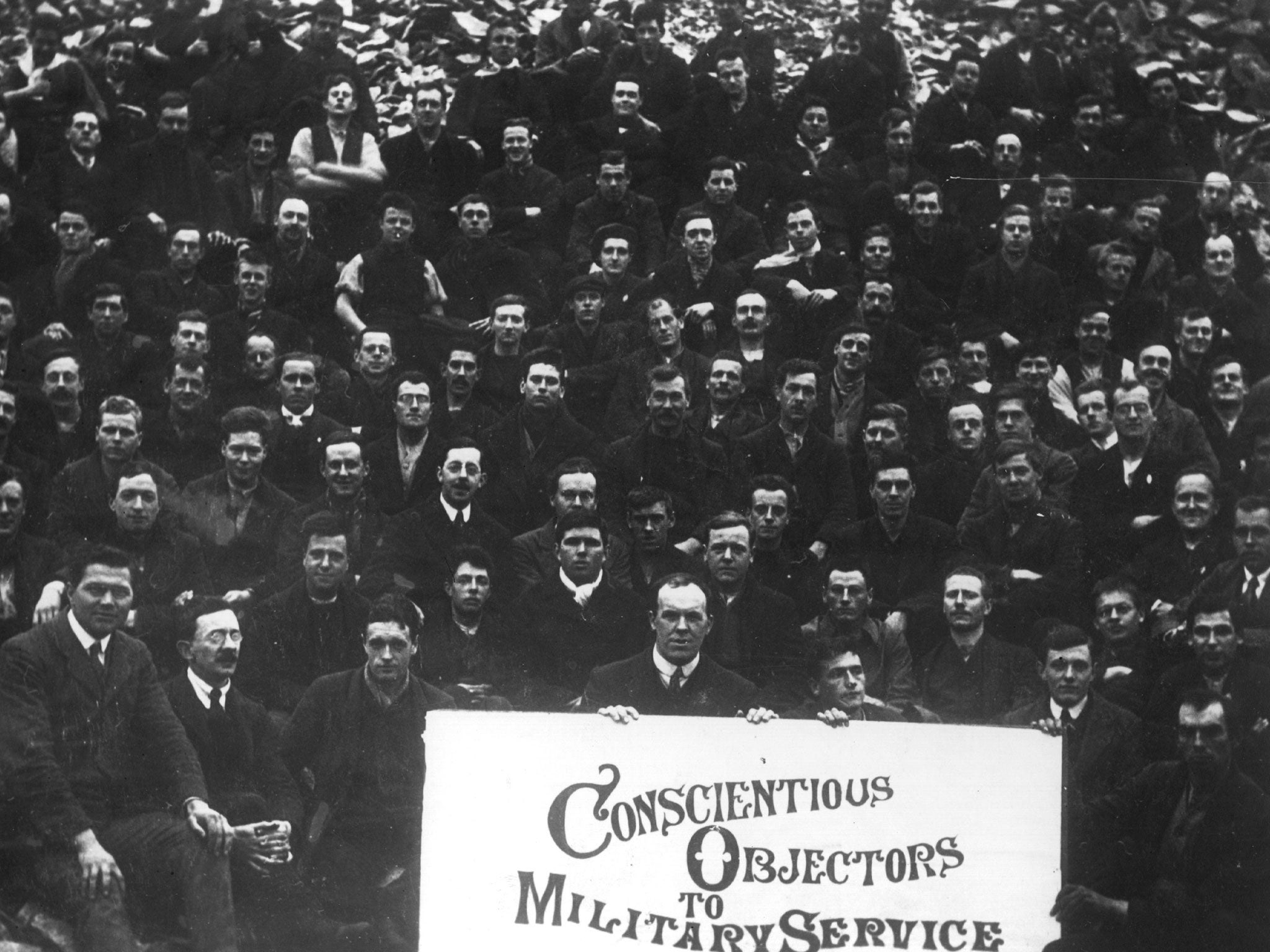Quakers to stage 'White Feather Diaries', a series of national events to honour WWI's conscientious objectors
Religious group plans a 'real-time social media storytelling project' to highlight lesser-known victims of the Great War

Young people will be asked to relive the agonising decisions faced by conscientious objectors during the First World War as part of the centenary anniversary events to mark the start of the conflict next year.
The White Feather Diaries, a real-time social media storytelling project by the Quakers, will explore how those that refused to join up for the trenches faced being ostracised, branded a coward or condemned to death for their beliefs.
Five youngsters aged between 16-24 will be invited to explore the dilemmas through Twitter and a daily blog leading up to the 1916 Military Service Act which resulted in 8,000 “conchies” being ordered to appear before tribunals, 17 of whom were sentenced to death and a further 142 ordered to serve life in prison.
The title of the project is taken from the white feather symbol of cowardice that was handed to pacifists in the street during the militaristic drive for recruits.
“The aim is to bring it home to young people that these are relevant decisions that are being faced today whether in Afghanistan or Syria,” said Jane Dawson of Quakers in Britain.
“It is a very brave decision especially during World War One when people were put in prison and suffered greatly because they believed killing was wrong.”
The event is one of nearly 3,000 exhibitions, performances or digital resources being launched across the UK over the next four years that were unveiled yesterday by the First World War Centenary Partnership Programme which represents 150 members in 50 countries affected by the conflict.
Among them will be the largest ever retrospective of World War One art ever seen, set to go on display next July at the Imperial War Museum, which is undergoing a £40m revamp.
Truth and Memory: British Art of the First World War will feature more than 110 paintings, sculptures and drawings from the museum’s collections. Tate Modern will present a collection of photography examining conflict sites over time whilst the Imperial War Museum North in Salford will examine the impact of the war in the North West.
There will also be a new staging of Oh! What a Lovely War, starring Caroline Quentin, at the Theatre Royal Stratford, east London where it was originally performed 50 years ago.
A tour by the RNLI beginning in Norfolk will examine how ordinary volunteers saved countless lives at sea during the fighting whereas the Thackray Medical Museum in Leeds, West Yorkshire, will show the medical advances achieved during the conflict.
Diane Lees, director−general of IWM said there was a huge level of interest in events.
“The First World War Centenary really matters to a huge amount of people. It may be because of a personal and family connection, the effect the First World War had on their hometown, how it changed our wider society or because of their beliefs about war and the importance of peace. We are all connected to the First World War and this huge and growing programme shows that millions of people want to remember and learn more about its impact,” she said.
Details of all events can be found at www.1914.org
Join our commenting forum
Join thought-provoking conversations, follow other Independent readers and see their replies
Comments